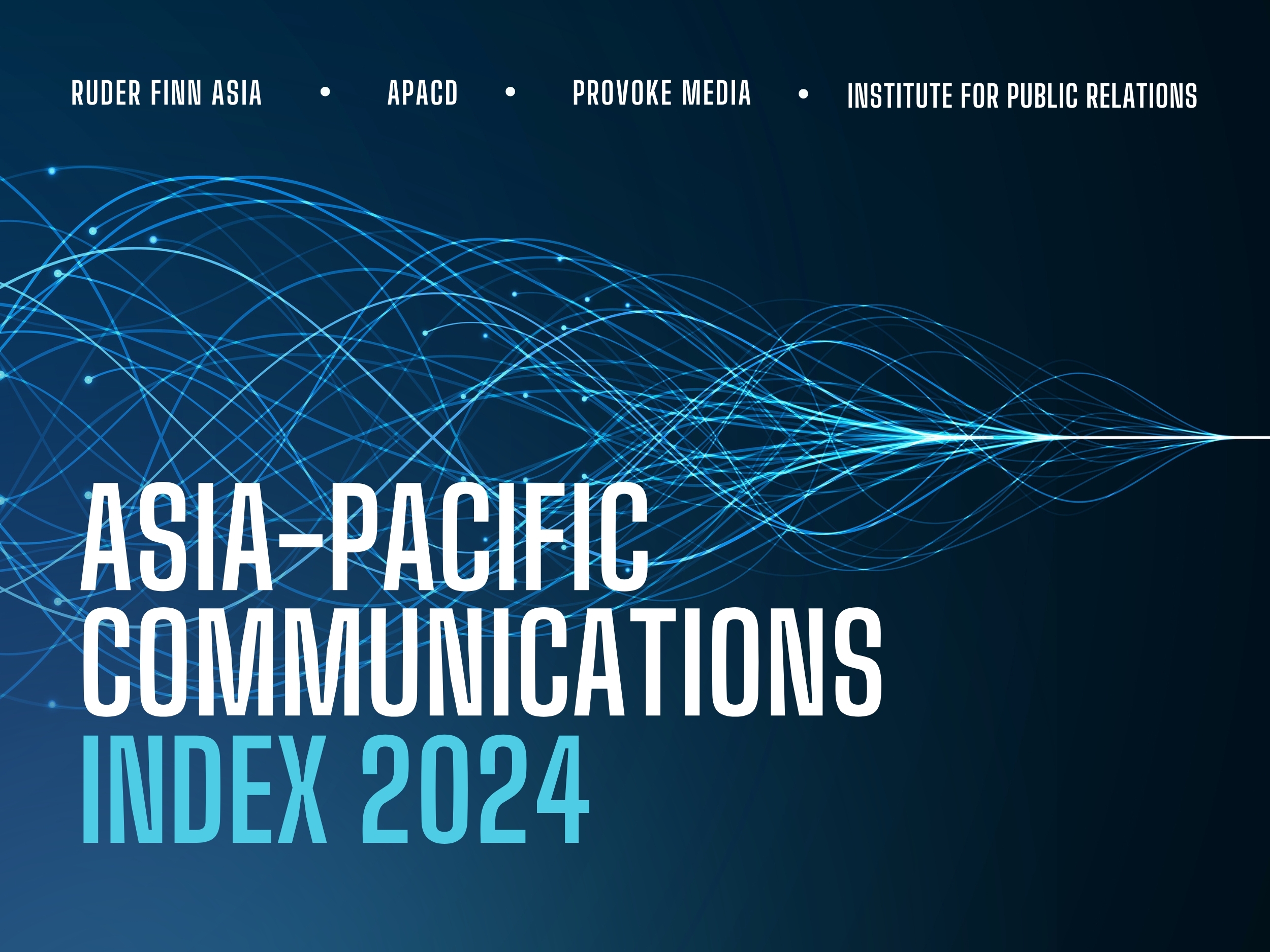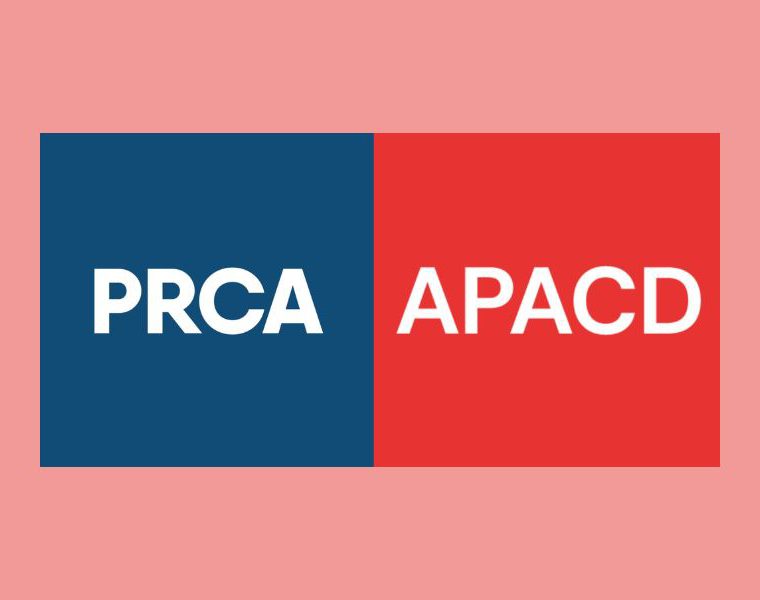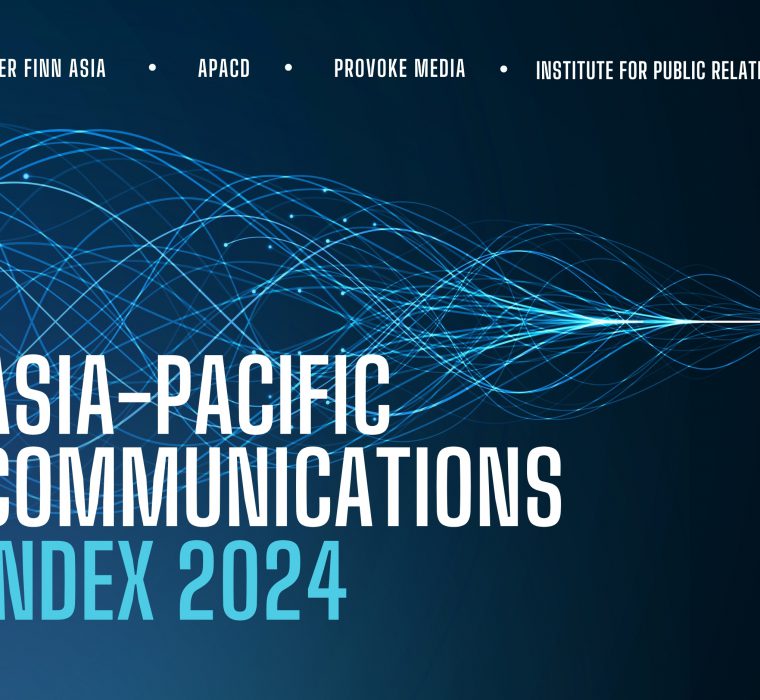2024 CommsIndex: Budgets Under Pressure As Lead Gen Overtakes ESG
9th October 2024
Fourth edition of Asia-Pacific study finds in-house communications leaders striving to prove tangible value amid pressure on budgets and teams.

Lead generation has overtaken ESG as a crucial business priority for Asia-Pacific in-house communications leaders, according to the fourth edition of a landmark study that finds a function striving to prove its value amid downward pressure on budgets and teams in 2024.
The 2024 Asia-Pacific Communications Index is conducted by the Asia-Pacific Association of Communication Directors (APACD) in conjunction with Ruder Finn Asia and the Institute for Public Relations, and polled approximately 100 senior in-house communications executives (including APACD members) across the region during the second and third quarters of this year.
The majority of respondents are communications leaders based in Singapore, India, Hong Kong or Australia. The study launched last week, by finding that generative AI usage and familiarity have risen dramatically over the past 12 months.
“Despite a slight increase in hiring expectations, communication functions are experiencing declining budgets with a decrease in perceived value, which is concerning,” said Institute for Public Relations CEO Tina McCorkindale. “While media clippings remain the most important impact metric, higher-value metrics like awareness and behavior change are unfortunately overlooked, and the focus on environmental initiatives and social issues has dropped considerably. Now more than ever, communication functions need to demonstrate their strategic value and drive sustainable impact.”
Unlike last year, when almost seven in 10 described the perceived value of their function as ‘extremely valuable’ or ‘very valuable’, less than two-thirds of respondents come to the same conclusion in 2024, potentially reflecting a more challenging economic environment.

Respondents are slightly more optimistic about their organization’s economic prospects over the next 12 months, with 31% stating they are ‘extremely confident’ compared to 21% 12 months ago.
Perhaps reflecting the more cautious economic climate, business development and lead generation overtakes ESG as key business priority for in-house communications leaders. Lead gen makes a notable jump to fourth place, behind brand building and thought leadership, which extends its lead at the top of the table. ESG drops from second to fifth (social impact) and seventh (environmental/climate).
Employer branding and employee engagement rank second and third, respectively, reflecting the crucial importance of an organization’s talent at a time of considerable economic and political uncertainty.

There is no change in the importance attributed to AI and digital innovation, while DEI, business transformation and change management all decline. Geopolitical risk, curiously, remains rooted to the bottom of this table.

The decline in ESG’s importance is brought home by the above charts, which demonstrate that less than half of Asia-Pacific in-house comms leaders see it as extremely or very important to their jobs, compared to almost seven in 10 last year.
“There is nothing like an economic punch in the face to wake everyone up,” said Ruder Finn EVP of global risk Charles Lankester. “It also usually predicts a shift back to basic principles: companies are focused on making money again. Good. As far as our industry is concerned, whilst the pain is unwelcome, it’s cathartic. We need to show our value. Measurably. As consultants, what have we done today to improve our clients’ worlds? If we can’t articulate this, we should pack up and go home.”
Expenditure & evaluation

Anecdotal evidence has told us this much for months, but the data confirms that communications budgets are seeing sustained downward pressure in 2024, following a period of relative expansion. More than two in five (42%) expect to spend less than $1m in 2024, compared to 18% in 2023. Less than a quarter (24%) are spending more than $4m this year, compared to one third (33%) in 2023.
Despite the rising value of earned media, the results further suggest that communications budgets are being disproportionately targeted for cuts versus advertising and media buying. 80% of respondents attribute less than half of the overall marketing budget to comms, compared to 60% last year. More worrying perhaps, 29% of respondents spend less than 10% of their overall marcomms budgets on communications, compared to 21% in 2023.

When it comes to the critical question of how this expenditure is evaluated, this year sees something of a regression — in that media clippings takes back the top spot ahead of favourability/positive sentiment and share of voice. A new measure — improved reputation — takes fourth position, but softer metrics continue to rank higher than financials, sales and even advocacy scores.
Team sizes are, similarly, under pressure. Exactly half of all teams employ 1-4 people in 2024, compared to 34% in 2023. Less than one in 10 (7.5%) have more than 20 people working for them this year, versus 21% in 2023.

Despite this decline, respondents are relatively positive about team growth over the next 12 months. A quarter of in-house leaders expect team sizes to increase, suggesting that better times may not be too far away.

When it comes to the primary responsibilities of the communications team, meanwhile, media relations remains on top, selected by 88% of respondents, ahead of crisis/issues (85%). Both media relations and corporate reputation decline in the top three, but the top five — including employee engagement and social media monitoring — has now remained the same for the past three years. Digital strategy jumps considerably to sixth, while public affairs (somewhat inexplicably) and ESG both decline.
 Further results over the next few days will reveal attitudes towards careers and the client-agency relationship.
Further results over the next few days will reveal attitudes towards careers and the client-agency relationship.





